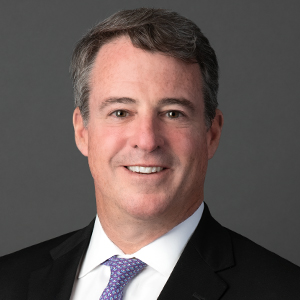In what is traditionally the major event of the year for the state Attorneys General community, CWAG met in Santa Barbara for its annual summer meeting where once again attendance neared one thousand people. On the agenda was online sports betting, cryptocurrency, cannabis regulation, opioids, tax implications of multistate settlements, e-commerce, and water issues. Off the agenda, discussions and meetings revolved around a multistate involving the hospitality industry and the reactions of the state Attorneys General to the Sprint/T-Mobile merger, national efforts to resolve the opioid lawsuits, and the proliferation of e-cigarettes. Being in California, FinTech and social media companies had an increased presence.
South Carolina Attorney General Alan Wilson moderated a panel on the ramifications of DOJ’s recent opinion on the application of the Wire Act of 1961 on the gaming industry. The panel examined the potentially harmful impact DOJ’s opinion may have on state-operated lotteries, online gambling, intrastate gambling, and brick-and-mortar casinos.
CWAG also held several panels related to trends in the cannabis industry, as well as the booming CBD and hemp industries. District of Columbia Attorney General Karl Racine moderated a panel examining the Canadian and U.S. regulatory response to the marijuana industry. Oregon Attorney General Ellen Rosenblum led a panel that took a deeper dive into cannabis research, the regulatory landscape and the increase in drivers driving while on drugs.
One of the best-attended panels was the General Counsel Roundtable, featuring Pfizer General Counsel Doug Lankler, Home Depot General Counsel Teresa Wynn Roseborough, and JP Morgan Chase General Counsel for Consumer Lending Stephen Simcock. Deputy General Counsel for the Recording Industry Association of America Vicky Sheckler discussed the challenges the music industry faces in protecting its copyrighted works from online infringement.
Illinois Attorney General Kwame Raoul moderated a panel that attempted to grapple with the difficult hurdles regulators face in cryptocurrency and blockchain technology.
Idaho Attorney General Lawrence Wasden moderated a panel that attempted to tackle the tricky issue of ensuring access to credit to middle class and disadvantaged populations. While demand for access to credit grows and the internet provides portals to that credit, state regulators often still rely on antiquated laws that seemingly hamstring disruptive companies around issues of interest rates and credit history.
Other panels at the conference included discussions on opioid intelligence and solutions, mental health issues, hate crimes, artificial intelligence, FinTech innovation and regulation, and data security and privacy.


